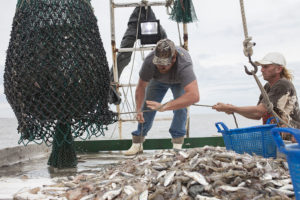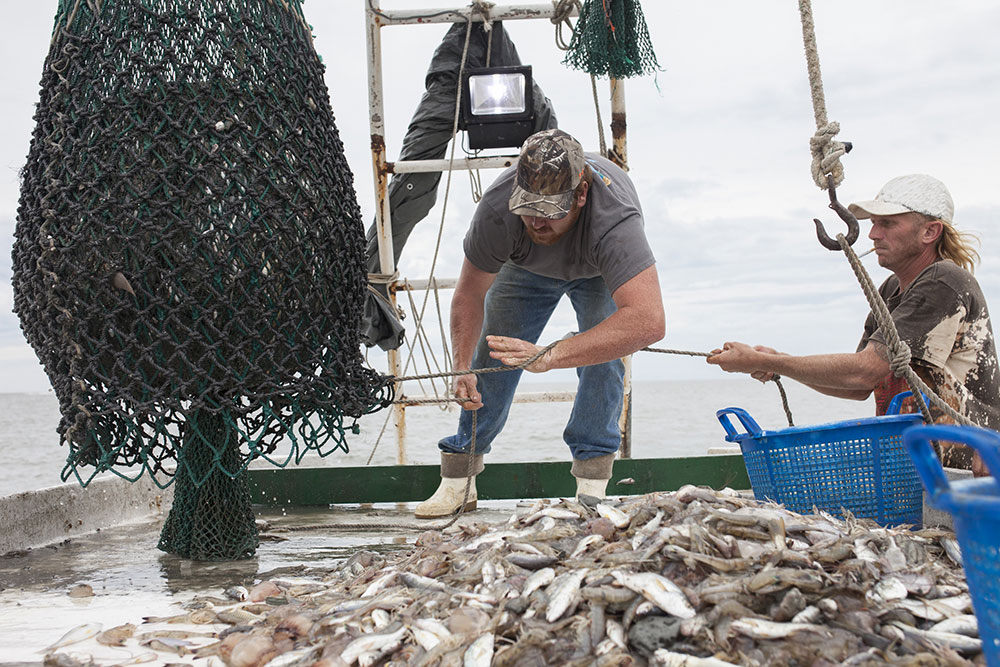Disclaimer: The information on our website is provided for general information purposes only. We make no representations or warranties of any kind, express or implied, about the completeness, accuracy, reliability, suitability or availability with respect to the website or the information contained on our website for any purpose. Any reliance on such information is therefore strictly at your own risk and we are not liable for any damages or losses arising out of or resulting from your reliance on any information contained on our website.
A fishing worker locates, traps, and catches a variety of aquatic life which are used for bait, food, and other uses. They may work in deep or shallow water and fish for long days at sea or shorter durations depending on what they are gathering. Watch a video to learn what a fishing worker does.
How to Become a Fishing Worker

Although a formal education is not a requirement you may improve your chances of employment by attending a 2-year vocational-technical school. There are some colleges and universities that offer courses in marine safety, seamanship, vessel repair and operations, fishing gear technology, and navigation. Most programs include hands-on experience and are typically located near coastal areas. However, most workers learn on-the-job beginning with cleaning and sorting the fish, operating the boat, and fishing equipment. You can consider volunteering or interning with experienced fishing crews to gain practical experience before seeking paid employment. This can provide valuable insights and connections within the industry.
Familiarize yourself with local, state, and federal fishing regulations, as compliance is essential to avoid legal issues and maintain sustainability in the industry. Also, depending on your location and fishing industry you want to work in, you may need a certification. For example, many commercial fishing jobs require you to have a valid Merchant Mariner Credential (MMC) issued by the U.S. Coast Guard. Additionally, certifications in first aid, CPR, and fishing-specific safety courses can be beneficial.
Also, fishing work can be physically demanding. Because of this, it’s important to maintain good physical fitness for safety and job performance. Finally, Be aware that many fishing jobs are seasonal, and work availability may vary throughout the year. Plan accordingly for potential periods of unemployment.
Job Description of a Fishing Worker
The duties of a fishing worker includes using equipment to locate fish and signal other workers to position loads, hoist, and move the catch. They steer the vessels, maintain fishing gear, engines, and other equipment. They are responsible for sorting, packing, and storing the seafood appropriately by using ice or other freezing techniques. The lure the legal size and variety of fish they are meant to catch and release unusable seafood back to their habitat. A fisher worker must also guide nets, lines, and traps into vessels with hoisting equipment or by hand.
Fishing Worker Career Video Transcript
Fishers and fishing workers experience the thrill of the catch, along with long waits and fruitless searches. They use nets, fishing rods, traps, and other equipment to catch and gather aquatic animals. The fishing boat captain runs the fishing operation and decides where to fish and when to return to port. Fishing deckhands perform the everyday tasks of baiting, setting lines or traps, hauling in and sorting the catch, and maintaining the boat and fishing gear.
On larger operations, crews work together hoisting heavy nets or using machinery to move large catches. They may be at sea for weeks or even months. Some fishers work on small boats with a crew of just one or two, using nets or dredges, or setting out pots and traps for lobsters and crabs. Some workers rake for kelp and other marine vegetation. Commercial fishing can be dangerous and medical care is often not immediately available. Many fishers are self-employed and are also seasonal workers, working long hours at strenuous tasks.
There is no education requirement for fishing; most learn on the job. Captains must be licensed. Fishers need a permit to fish in almost any water. Permits specify the fishing season, the type and amount of fish that may be caught, and sometimes, the type of permissible fishing gear.
Article Citations
Bureau of Labor Statistics, U.S. Department of Labor, Occupational Outlook Handbook, Fishing and Hunting Workers.
National Center for O*NET Development. 45-3011.00. O*NET OnLine.
The career video is in the public domain from the U. S. Department of Labor, Employment and Training Administration.

